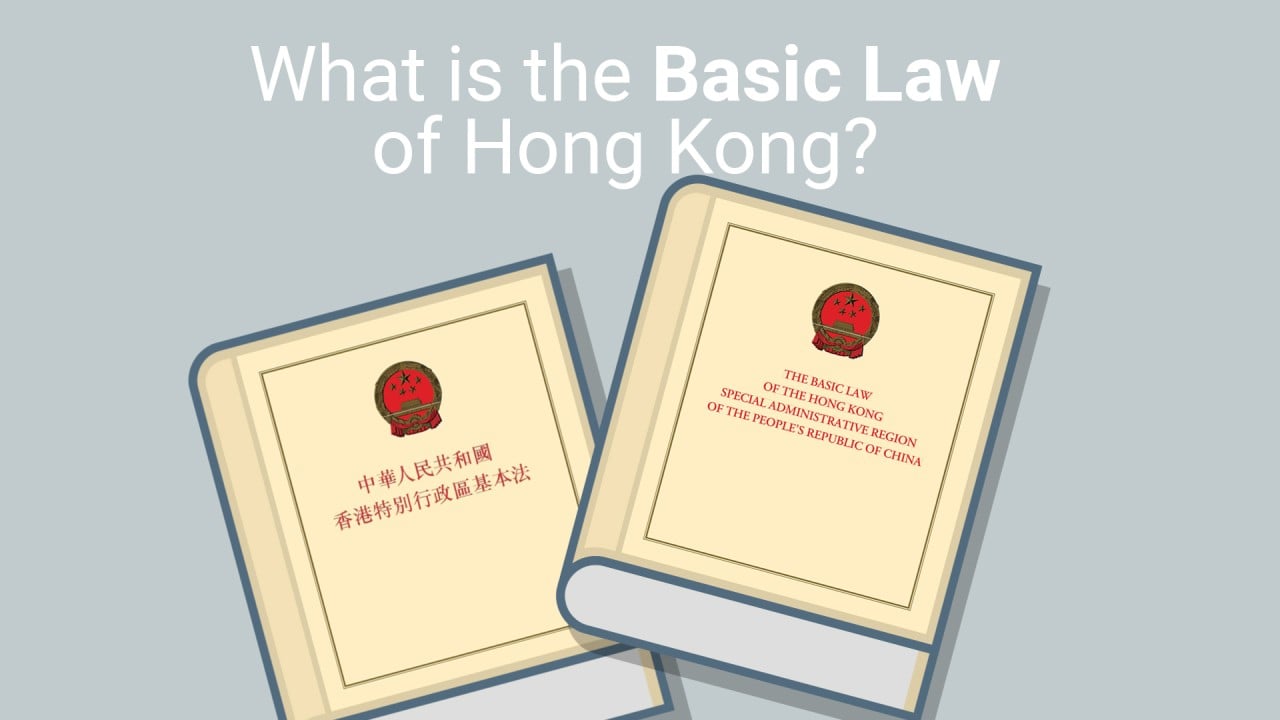
Oath-taking rules extended to Hong Kong government staff on non-civil service contracts; two district councillors ousted as new law takes effect
- Civil Service Bureau says that 11,000 or so of its full-time staff hired on those terms face dismissal if they do not meet the allegiance requirements
- A related law covering district councillors takes effect and immediately unseats two politicians, Tiffany Yuen and Lester Shum
Extended oath-taking rules will cover Hong Kong government staff on non-civil service contracts, hours after a related allegiance law took effect and resulted in the immediate disqualification of two opposition district councillors.
The Civil Service Bureau announced on Friday that more than 22,000 full-time and part-time staff hired on those contracts – who typically hold more casual roles – were now subject to the same allegiance requirements as the rest of its workforce, and faced losing their jobs if they refused.
Bill allowing ‘unpatriotic’ district councillors to be unseated sails through Legco
The bureau said that those hired on non-civil service terms on or after July 1, 2020, would have three months to sign a declaration pledging to uphold the Basic Law – the city’s mini-constitution – and bear allegiance to Hong Kong.
The Hongkong Post, the Education Bureau and the Registration and Electoral Office have the largest number of staff on such contracts.
New hires on non-civil service terms would also be required to sign the declaration, a spokesman added, and refusal to do so could result in the termination of employment contracts.
“Negligence or refusal to duly sign and return the declaration by a non-civil service member of government staff reflects a refusal to comply with the requirement under Article 6 of the national security law,” the spokesman said.
“The government will, based on the facts of each case, consider whether action should be taken to terminate the employment of the non-civil service government staff concerned.”
Leung Chau-ting, chief executive of the Hong Kong Federation of Civil Service Unions, said he believed that most of the government staff serving under non-civil service terms started their employment contracts on or after July 1, 2020.
“Most of them were hired on contracts which were renewed every year, and … the government has been hiring many people under non-civil service terms during the pandemic,” he said.
Leung feared the new requirement would make recruitment harder for the government.
“Many of them are just frontline staff joining the government on a short-term basis to share the civil servants’ workload … They could be worried that after they signed the declaration, there would be things that they cannot say or do.”

02:31
What is the Basic Law of Hong Kong?
Under Article 104 of the Basic Law, the chief executive, principal officials, Executive Council members, lawmakers and judges are required to take an oath of office.
Article 6 of the national security law extended that requirement to all holders of public office, such as undersecretaries, permanent secretaries and the ministers’ political assistants.
The Civil Service Bureau also requires the city’s more than 170,000 civil servants, of all ranks, to sign a declaration promising to uphold the Basic Law, and bear allegiance to the Hong Kong Special Administrative Region.
The security law also led to the Public Offices (Candidacy and Taking Up Offices) (Miscellaneous Amendments) Ordinance 2021, which was approved by the Legislative Council on May 12 to give authorities new powers to unseat “unpatriotic” district councillors and recover their salaries.
The new law – taking effect on Friday – allows for the disqualification of district representatives if their oaths are deemed invalid.

The government also declared in its gazette that there were now 12 vacancies on the city’s district councils, two of which were vacated by opposition activists unseated as a result of the new law.
The two were Tiffany Yuen Ka-wai and Lester Shum, who were elected to the Southern and Tsuen Wan district councils respectively.
Yuen and Shum, both currently detained, were charged under the national security law over their participation in an opposition camp primary election last year.
What is Hong Kong’s new oath-taking bill all about, and who will be affected?
Organisers said the primary was designed to choose the most popular candidates to run in the since-postponed Legco polls, but prosecutors argued it was part of a subversive plot to overthrow the city’s administration.
Nine of the vacancies were created when opposition councillors resigned for various reasons.
The remaining empty seat was previously occupied by Kwun Tong district councillor Hinson Hung Chun-hin, who was ousted by a court in February for falsely claiming his pro-establishment rival was a “fake independent” during an election campaign more than a year ago.
Under the new legislation, more than 400 local councillors across the city’s 18 districts will be obliged to take an oath as early as next month.
Secretary for Home Affairs Caspar Tsui Ying-wai will oversee their vows, and has the power to disqualify councillors on the spot.

